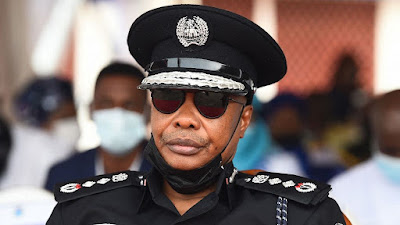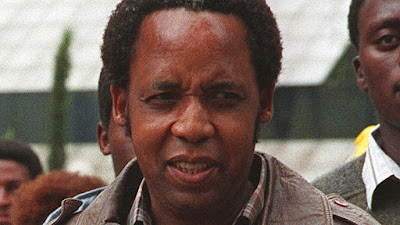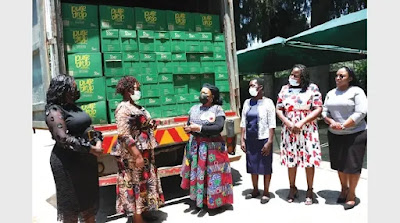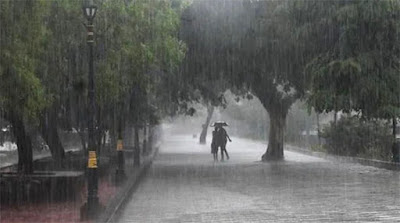Zimbabwe First Lady Appointed Cotton Development Trust Patron
24 NOVEMBER 2022
The Herald (Harare)
By Tendai Rupapa
FIRST Lady Dr Auxillia Mnangagwa was yesterday officially announced as patron of Zimbabwe Women in Cotton Development Trust (ZWCDT), a move aimed at boosting women participation in cotton production to improve livelihoods.
Dr Mnangagwa has a passion for the economic empowerment of women.
Chairlady of the Zimbabwe Women in Cotton Development Trust, Mrs Patience Zhakata, said the trust appointed Dr Mnangagwa as its patron last year and had been working closely with her ever since.
To show their appreciation for her teachings, guidance and hard work, the trust donated cooking oil to Angel of Hope Foundation which was made from their produce for onward distribution to the less privileged.
Mrs Zhakata highlighted payment challenges women cotton growers previously experienced as they would sometimes get paltry sums or be paid in groceries that included green bar soap or soya chunks.
This, she said, discouraged the farmers hence reduced participation by women in cotton production.
However, the First Lady yesterday brought together growers and other stakeholders in the industry, including buyers, to iron out grey areas and give an assurance that the farmers will be paid well for their produce next season.
"We chose you Amai to be our patron so that you lead us as we spearhead development as women in the cotton industry. We have been working with you so well and have come to officially announce so that the nation knows that you are our patron.
"As we work closely with you, people should know that you are our patron as Zimbabwe women in cotton development trust. We thank you for all the things you are doing for us a women farmers countrywide, for all the teachings and guidance you always give us.
"We see the beauty of your interventions because as mothers we were crying as our children were now getting into drugs.
"Our daughters were rushing into marriage, but since you came up with your Gota/Nhanga/Ixhiba programme, we started seeing changes in our children who are now joining us in farmers. They are now appreciating working hard using their hands. With your guidance Amai, we are seeing our cotton production projects succeeding," Mrs Zhakata said.
"We can now work with our children planning our things as a family. We want to thank you for doing splendid work for us as women and for our children. We had lost dignity but since you came in, you restored our confidence.
"We thank you immensely because people had lost hope and dumped cotton production because of the meagre payments we were getting. We were being paid with a bar of laundry soap and chunks which was not taking us anywhere.
"Today you have made it possible for us to meet our partners like Cottco and other international partners. I am delighted that now we can move forward because our partners have explained that from now on things will be moving in a good direction.
"As Zimbabwe women development trust, taking a leaf from you and what you taught us, we saw it fit to hand you boxes of cooking oil so that you help the needy in your philanthropy as the mother of the nation. We are grateful Amai," she said.
In her acceptance speech, the First Lady encouraged women farmers countrywide to continue working hard to achieve success.
"I want to thank the women who saw it fit to appoint me as their patron focusing on women in cotton production in Zimbabwe. Pane basa ndipo pandinofarira.
"I accept the patronal role. Women we are hardworkers therefore ndinoti munhukadzi wese mumunda. We do not want to see women pulling each other down, we want to see results. I am ready, therefore, I am calling all women in cotton production to work hard for the development of their families, communities and the nation at large," she said.
She thanked the trust for the cooking oil donation.
"I am very much impressed to accept this tremendous donation in recognition of my philanthropic work and your support in women empowerment programmes.
"By giving me this donation, this will give me a good footing as a mother and hand over to the needy products made from the work of your hands. I thank you.
All this is evidence that if well empowered women can uplift their livelihoods and that of their families, communities and the nation at large. It is my duty therefore to ensure that this donation reaches the intended beneficiaries who are also your fellow women and the marginalised groups out there," she said.
The First Lady said it was heartening to note that as women, they had the courage to work with the private sector in the empowerment drive.
"This should inspire women to follow your footsteps and knock on the private sector doors to boost their projects. Let me once again thank you for this timely donation and implore you to pass on your experiences to fellow women in your local communities for the betterment of your livelihoods as mothers," she said.
Chairman of the Cottco board, Mr Sifelani Jabangwe who was represented by the company's head of finance Ms Jacqueline Dube said his organisation was committed to women empowerment.
"On behalf of the board and management of Cottco, I would like to assure the Zimbabwe women in cotton development trust that as Cottco we are committed to working with you.
"In fact if you look at the way that we distribute inputs and the way that we have been doing so we are ensuring that women are getting an equitable share of inputs.
"Right now inputs are being distributed across the country and I would like to call upon all women to go and access the inputs we are giving to a husband and his wife to ensure that everybody is receiving their share of inputs.
"We would like to thank Amai for bringing us together this morning. It was a very profitable discussion where we got to understand the challenges that women were facing.
"In particular there were issues to do with the payment modalities that were there in 2020 when some women received payment in the form of groceries.
"We would like to assure every woman that we are paying in us dollars and in EcoCash. We are paying 75 percent of your product in US dollar cash so I encourage every woman to go out there and farm.
"We would also like to thank the First Lady for the value addition initiative. As Cottco we want to see our communities being transformed and our theme is transforming communities. We want to see women in the rural areas value adding cotton products so that we can see cooking oil being distributed among the communities.
"In addition as Cottco we would like to see spinning taking place in the communities, sewing taking place within the communities. So these are some of the initiatives that as Cottco we are also partnering with women across the country to ensure that women are uplifted. We also want to see our youths employed so as Cottco we are also allowing youths to plant seed cotton.
"We have one cry, we are asking all farmers out there to not sell fertilisers. It's important for us as a country to be able to grow seed cotton so that we get all these by-products and they develop our communities.
"We would also like to thank all our international partners that have availed funding in the past and that have offered us funding in the forthcoming buying season.
"The paperwork that is required for those funds to come through is being put in place so that farmers next year will experience timeous payments," she said.
Surface Wilmar's group corporate affairs executive Mr Sylvester Dendere also indicated willingness to work with women in cotton production and supporting them fully.
"Our business in the cotton value chain is ready to crush. When the women farmers visited us some time, they indicated that they were interested in getting the final product or for us to process the ginned cotton seed under a toll arrangement.
"We did this year and we managed to present to them 320 boxes of cooking oil. There are 500 more boxes coming through once this structure has been completed. But what I want to assure the women cotton farmers is that Surface Wilmar is available.
"It will always crush any product, any amount of cotton that they will bring and this hopefully will be an incentive for them to produce more cotton. More cotton for us to crush so that we are able to supply them with more oil for their work.
"We also will support Cottco in the event that they need local pre-finance to enable them to buy cotton from farmers. We are there to support farmers, we are there to support everyone in the cotton value chain.
"We have got enough capacity on the ground to crush all the cotton that can be grown in this country and obviously the products can be exported. At that stage, we would have fulfilled the ideals of what Amai has been pushing so the women farmers will be supported by us. The children will be involved in setting up small businesses, maybe to sell oil. It's really up to the farming community to determine," Mr Dendere said.
In his remarks, Mr Maxwell Chard, the local representative of the international partners, consortium of international cotton buyers based in Europe and the Middle East who have been trading with Cottco for the past six years expressed desire to back the First Lady's initiatives.
"We have seen the initiative of the First Lady. As international buyers of cotton we have seen her work with the women cotton farmer and in line with the international cotton association's theme of supporting women in cotton we decided to partner with Cottco to ensure that the women farmer is supported financially, that Cottco has the capacity to pay the farmer timeously.
"We have previously arranged such a facility with Cottco in 2017 for US$10million which was successful and having seen the initiative of the First Lady, how she has been working supporting the woman cotton farmer we have now pledged to support this work with a pre-finance facility which we are offering Cottco to support its buy-back scheme so that they will be able to support the woman cotton farmer. We believe that this will increase and motivate the farmer to produce more.
"As international buyers, we are here to reassure the nation that we will support the woman cotton farmer and even the Zimbabwe Women Cotton Development Trust when it was established we have been financing that trust to ensure that they undertake the projects which they have envisaged to do in the past 12 months.
"We would like to congratulate the mother of the nation for being appointed patron of women in cotton production. We are pleased to work with her," he said.





















